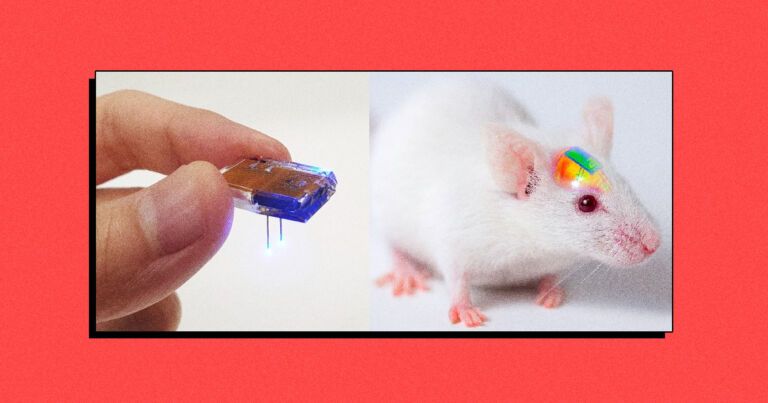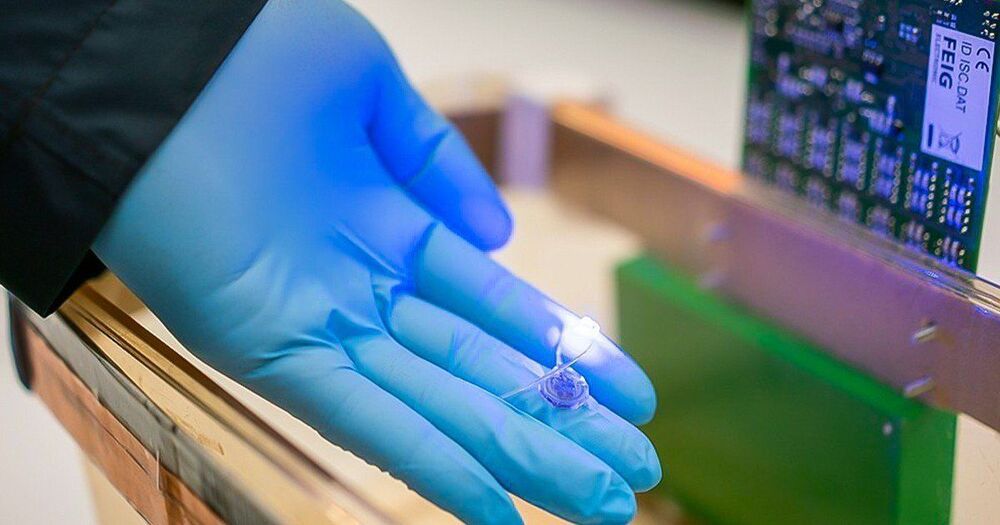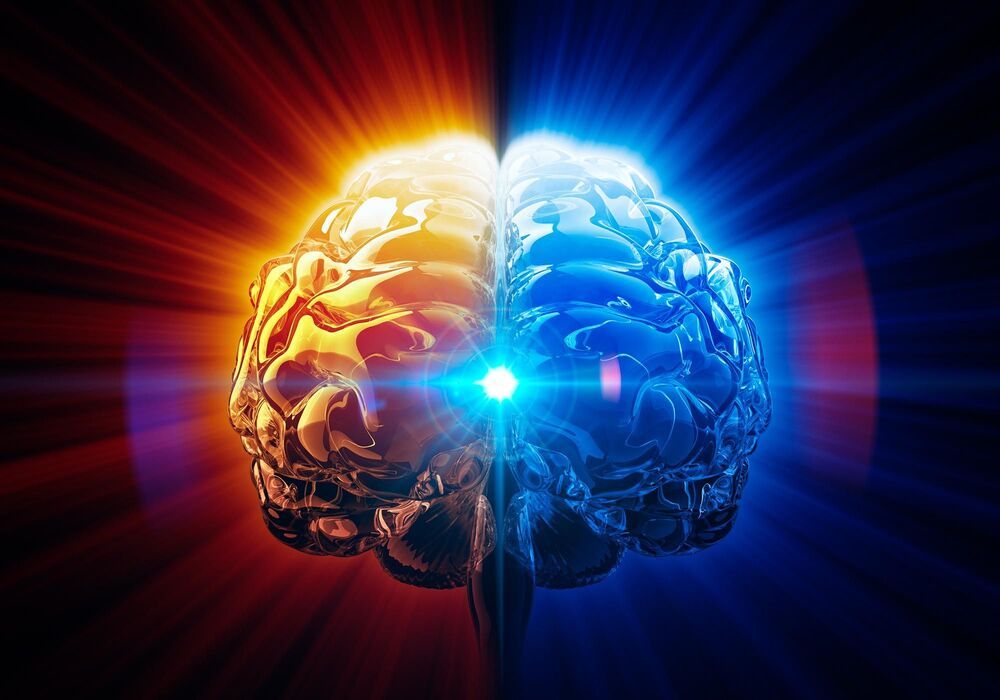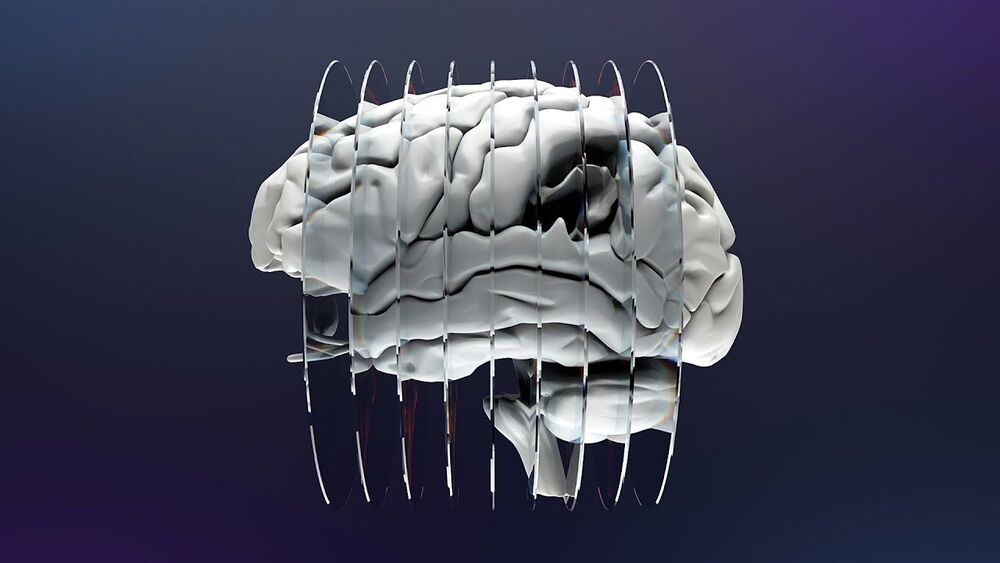I think this could be one way for Valve to keep its players happy! 😃
Gabe Newell envisions future brain-computer interfaces personalizing video game settings, turning up our focus, and modifying sleep patterns.


I think we may need to be more careful about brain implants in the future. 😃
Cutting down on the number of invasive surgeries associated with implants is one thing, but the wireless implant also stands to improve the quality of animal research. Without wireless controls or charging, animals needed to be wired up to power sources or other electronics with invasive, restrictive tethers. Doing away with those allows the animals to behave how they normally would have.
In the case of this particular test, KAIST scientists used the implant to block cocaine-associated behaviors in rats who they had just injected with the drug. But they suspect the underlying tech could be used in all sorts of implants and medical devices.
“We believe that the same basic technology can be applied to various types of implants, including deep brain stimulators, and cardiac and gastric pacemakers,” Jeong said in the release, “to reduce the burden on patients for long-term use within the body.”

A tiny implant offers a new weight loss option, and a gastric bypass alternative, for people suffering from obesity.
The device uses light to stimulate the nerve responsible for regulating food intake. A tiny glow from the implant and users don’t feel as hungry — instead, they feel full.
Researchers at Texas A&M say that this dime-sized device could provide a far less invasive surgical option than the so-called stomach stapling surgery — which is currently a last resort surgery for obese patients. This could be a viable option for a gastric bypass alternative.

HOUSTON — (Jan. 252021) — Wireless communication directly between brains is one step closer to reality thanks to $8 million in Department of Defense follow-up funding for Rice University neuroengineers.
The Defense Advanced Research Projects Agency (DARPA), which funded the team’s proof-of-principle research toward a wireless brain link in 2018, has asked for a preclinical demonstration of the technology that could set the stage for human tests as early as 2022.
“We started this in a very exploratory phase,” said Rice’s Jacob Robinson, lead investigator on the MOANA Project, which ultimately hopes to create a dual-function, wireless headset capable of both “reading” and “writing” brain activity to help restore lost sensory function, all without the need for surgery.

Gamers of the future should be prepared! 😃
NZ’s newest resident billionaire says BCIs could be used to change a person’s mood, help them fall asleep, and to create incredibly immersive games.


Researchers at Tokyo Medical and Dental University (TMDU) in Japan show that melatonin and its metabolites promote the formation of long-term memories in mice and protect against cognitive decline.
Researchers at Tokyo Medical and Dental University (TMDU) showed that melatonin’s metabolite AMK can enhance the formation of long-term memories in mice. Memory of objects were tested after treatment with melatonin or two of its metabolites. Older mice that normally performed poorly on the memory task showed improvements as dosage increased. The metabolite AMK was found to be the most important as melatonin failed to improve memory if it was blocked from metabolizing into AMK.
Walk down the supplement aisle in your local drugstore and you’ll find fish oil, ginkgo, vitamin E, and ginseng, all touted as memory boosters that can help you avoid cognitive decline. You’ll also find melatonin, which is sold primarily in the United States as a sleep supplement. It now looks like melatonin marketers might have to do a rethink. In a new study, researchers led by Atsuhiko Hattori at Tokyo Medical and Dental University (TMDU) in Japan have shown that melatonin and two of its metabolites help memories stick around in the brain and can shield mice, and potentially people, from cognitive decline.

Like periods in women, after a while our brains waves synchronise with the people we share our communications (family, friends, co-workers, church members, social media, etc.) so, it is good to know what are those and how they affect others and you.
Thanks to CuriosityStream for sponsoring this video! Go to https://curiositystream.com/thoughty or use code THOUGHTY at sign up to receive year-long access for just $14.99!
Thoughty2 Book: https://geni.us/t2book.
Thoughty2 Audiobook: https://geni.us/t2audio.
Support Me & Get Early Access: http://bit.ly/t2club.
Thoughty2 Merchandise: https://bit.ly/t2merch.
Follow Thoughty2
Facebook: https://facebook.com/thoughty2
Instagram: https://instagram.com/thoughty2
Website: http://thoughty2.com.
About Thoughty2
Thoughty2 (Arran) is a British YouTuber and gatekeeper of useless facts. Thoughty2 creates mind-blowing factual videos about science, tech, history, opinion and just about everything else.
#Thoughty2
Writing: Bevan Rees.
Editing: Alex Brown.
Script Development: Steven Rix

It is true. From its effect on biomarkers such as heat shock proteins and Fox 03, through to real world impacts on cardiovascular health, to improving mood, helping you live longer healthier and reducing your chance of dying before your time. I think we all know saunas are really great for you, but this will give you all the scientific reasons why… Taking it easy and relaxing for half an hour… Is not just wasting your time… Changes today will make tomorrow better. #saunas
I am going to give you the best reasons in the world to sit back and take it easy in a nice warm environment, and to just forget the troubles of the world.
Maybe play some music, or a podcast, or listen to a book, or just meditate, just relax and take it easy.
It is for your own health after all!!
How about clicking here and watching the video I did on good and bad stress.
The science in the video.
Modulation of body temperature and LH secretion by hypothalamic KNDy (kisspeptin, neurokinin B and dynorphin) neurons.
https://www.sciencedirect.com/science/article/abs/pii/S009130221300037X
Cardiovascular and Other Health Benefits of Sauna Bathing: A Review of the Evidence.
https://www.sciencedirect.com/science/article/abs/pii/S0025619618302751
Sauna use linked to longer life, fewer fatal heart problems.
https://www.health.harvard.edu/blog/sauna-use-linked-longer-life-fewer-fatal-heart-problems-201502257755
Association between sauna bathing and fatal cardiovascular and all-cause mortality events.
https://pubmed.ncbi.nlm.nih.gov/25705824/

Scientists pinpoint brain wave patterns that signal when our minds are wandering. (iStockphoto)
Anyone who has tried and failed to meditate knows that our minds are rarely still. But where do they roam? New research led by UC Berkeley has come up with a way to track the flow of our internal thought processes and signal whether our minds are focused, fixated or wandering.
Using an electroencephalogram (EEG) to measure brain activity while people performed mundane attention tasks, researchers identified brain signals that reveal when the mind is not focused on the task at hand or aimlessly wandering, especially after concentrating on an assignment.